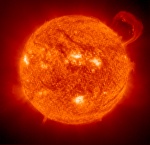Užas: Xi Jinping se kladi na Putina!
Page 1 of 1
 Užas: Xi Jinping se kladi na Putina!
Užas: Xi Jinping se kladi na Putina!
Xi Jinping: 'Imam osobnost istu ko tvoja!'

The Wall Street Journal: China's leader Xi Jinping has in recent months tried to put public distance between Beijing and Moscow as Russia has suffered defeats in its war on Ukraine.
Behind the diplomatic appearances, however, Mr. Xi is deepening his long-term bet on Russia.
In recent weeks, he has instructed his government to forge stronger economic ties with Russia, according to policy advisers to Beijing, building on a trade relationship that has strengthened this year and become a lifeline to Moscow in the face of Western pressure.
The plan includes increasing Chinese imports of Russian oil, gas and farm goods, more joint energy partnerships in the Arctic and increased Chinese investment in Russian infrastructure, such as railways and ports, the advisers say.
Russia and China are also conducting more financial transactions in the ruble and yuan, rather than the euro or dollar, a move that helps insulate the two against future sanctions and put the Chinese currency into wider circulation.
The tightening ties are the latest twist in the bilateral relationship, which intensified just before the Russian invasion, when a joint declaration asserted there were “no limits” to the partnership. After appearing to have second thoughts about aligning itself so closely with Moscow, China has since moved to cement their cooperation.
“Xi has been strengthening China’s relations with Russia largely independent of the Russian invasion,” said Yun Sun, director of the China program at the Stimson Center, a Washington think tank. “The relationship may well be becoming ever closer.”
In a written statement, China’s Foreign Ministry said “China and Russia are comprehensive strategic cooperative partners of each other. The development of bilateral relations is based on the principles of non-alliance, non-confrontation and non-targeting of third parties.”
The Kremlin’s press service didn’t respond to a request for comment.
China’s partnership with Russia has helped to shelter Moscow from the economic fallout of the Western sanctions, enabling leader Vladimir Putin to sustain his war. It is also furthering a global divide, discouraging many developing countries reliant on China for trade from taking sides in the conflict.
Russia and China have long sought to dull the U.S.’s influence in the world, a shared objective that has come into sharper focus in recent years as the two nations have grown confident they can reshape an international order that both view as biased in favor of the West and its allies.
Mr. Xi’s longstanding admiration for Russia and Mr. Putin has fortified his quest to enhance ties with China’s northern neighbor. The 69-year-old Chinese leader is expected to visit Moscow next year, likely after China’s legislative sessions in March, Russia’s ambassador to Beijing, Igor Morgulov, recently told reporters. The visit, if it occurs, will mark the two leaders’ 40th face-to-face meeting.
China’s Foreign Ministry said Beijing and Moscow “will continue to carry out exchanges at all levels.”
Still, the escalating war in Ukraine has more recently forced Beijing to walk a diplomatic tightrope. China still needs Western technology and close ties with other foreign powers to deliver on its aspiration of overtaking the U.S. as the world’s biggest economy.
Mr. Xi, who came to power in 2012, also faces challenges at home with China in its worst economic slowdown in decades and severe Covid-control restrictions that had sparked a wave of nationwide protests. Meanwhile, his entente with Mr. Putin has left China increasingly isolated on the world stage.
In recent months, Mr. Xi has sought to temper relations with Russia publicly to avoid provoking a collective Western backlash, say foreign-affairs analysts and government advisers in Beijing. Most notably, the Chinese leader recently told other world leaders that he opposes the use of nuclear weapons in Ukraine—after Mr. Putin threatened to do so.
China hasn’t directly condemned the Russian invasion. It also continues to avoid arms deliveries or other overt support for Mr. Putin’s war effort.
‘Nonsense’ Mr. Xi’s pro-Russian leanings stem in part from his family and biography. In 1953, the year Mr. Xi was born, Mao Zedong launched a campaign to study the Soviet Union as a model for China’s political, economic and military systems.
Mr. Xi’s father, Xi Zhongxun, a party revolutionary who fought alongside Mao, went to the Soviet Union in the late 1950s to study its heavy industry.
The movement profoundly shaped Mr. Xi’s youth, leading to a deep-rooted admiration for Soviet values, history and culture, according to historians.
His “Russia complex,” as dubbed by some, was so deep that nearly three decades of a Soviet-China split over ideological and other differences didn’t shake it. Relations between Beijing and Moscow improved following the Soviet Union’s collapse and the establishment of the Russian state in 1991, with both seeing the U.S. as a competitor.
In 2013, on the eve of Mr. Xi’s state visit to Russia, his first foreign trip as China’s president, Mr. Putin remarked that the two countries were forging a special relationship. The authoritarian leaders shared similar visions of restoring their countries to past glory. “I have a similar personality to yours,” Mr. Xi told Mr. Putin during his visit to Moscow.
The two have since developed a ritual of wishing each other happy birthday.
After coming to power, Mr. Xi sought to change China’s leadership structure, aligning it more with the “Putin model”. He has downgraded the powerful Standing Committee of the Politburo, which in turn, gives himself more authority.
Economic ties between China and Russia have been deepening since Moscow’s seizure of Crimea from Ukraine in 2014.
Beijing’s refusal to join Western sanctions against Russia has made some Russian business sectors, including energy and farm-goods producers, increasingly reliant on Chinese markets and financing.
A sign of Mr. Xi’s support for Russia came soon after Donald Trump became U.S. president in early 2017. Mr. Trump’s campaign promise to improve relations with Russia caused alarm in the gated leadership compound in Beijing.
A report sent up by Mr. Xi’s alma mater, the prestigious Tsinghua University, argued that Russia’s economy had no future, implying little gain for China in a closer relationship, according to people with knowledge of the matter.
“Nonsense,” Mr. Xi wrote in the margins of the report, the people say.
Mr. Trump’s trade war against China helped push the Asian country closer still to Russia, say policy advisers in Beijing.
In the early summer of 2019, shortly after Mr. Trump accused China of reneging on a negotiated trade agreement and imposed further punitive tariffs on Chinese products, Mr. Xi traveled to Moscow for the eighth time as China’s top leader.
https://www.wsj.com/articles/xi-jinping-putin-china-russia-relations-11671030896
-------------------------
Kineski čelnik Xi Jinping naložio vladi da uspostavi bliže gospodarske odnose s Rusijom.
Nakon devet mjeseci čekanja, Kina je konačno odlučila s kim je. Užas!

crvenkasti-

Posts : 29707
2014-04-17
 Re: Užas: Xi Jinping se kladi na Putina!
Re: Užas: Xi Jinping se kladi na Putina!
Kina zna gdje je, ima interese. Samo je srbadija zakazala, niste otvorili front u Europi kada vam je bilo zapovijedjeno i za to cete platiti i Rusiji i Kini, skupo.

omni-

Posts : 7009
2014-04-12
Lokacija: : 9 krug
 Re: Užas: Xi Jinping se kladi na Putina!
Re: Užas: Xi Jinping se kladi na Putina!
Kineski predsjednik Xi Jinping naredio je kineskim zvaničnicima da uspostave bliže ekonomske veze s Rusijom, nudeći trajni spas od zapadnih sankcija zbog njene invazije na Ukrajinu, objavio je The Wall Street Journal.
Pozivajući se na savjetnike kineske vlade za politiku, list je objavio da Xijev plan uključuje "povećanje kineskog uvoza ruske nafte, plina i poljoprivrednih dobara, više zajedničkih energetskih partnerstava na Arktiku i povećanje kineskih ulaganja u rusku infrastrukturu, kao što su željeznice i luke".
To jača vitalnu vezu za Rusiju, koja se suočava sa ozbiljnim sankcijama koje su oštetile njenu ekonomiju. Evropska unija je 4. decembra pooštrila svoje sankcije, najavljujući da zabranjuje uvoz ruske nafte u blok, u pokušaju da ograniči prihode od nafte koji su među najvažnijim ekonomskim sredstvima Rusije.
Kina je odbila da učestvuje u sankcijama, umesto toga je povećala trgovinu sa Rusijom i postala ključno izvozno tržište nafte za Rusiju.
Kina se pozicionirala kao ključni međunarodni saveznik Rusije, a Moskva i Peking su najavili da "nema ograničenja" za njihovu saradnju neposredno prije nego što je Rusija započela invaziju na Ukrajinu u februaru.
U martu je Xi je izbjegao da se previše uplete u ruski sukob ali u mjesecima koji su uslijedili, Kina je u velikoj mjeri podržala pokušaj Rusije da prikaže svoju ničim izazvanu invaziju kao odgovor na širenje NATO-a na istok.
To se promijenilo kada je ruski predsjednik Vladimir Putin počeo prijetiti Zapadu perspektivom nuklearnog oružja zbog podrške Ukrajini, što je navelo Xija da bude kritičniji prema Rusiji.
Tokom posjete njemačkog kancelara Olafa Scholza u novembru Xi je kritikovao Putinovu nuklearnu retoriku i pozvao Njemačku da pomogne u posredovanju u mirovnom sporazumu između Rusije i Ukrajine.
Ali uprkos javnim izjavama, Xi je u četiri oka nastavio da jača veze Kine sa Rusijom i vidi je kao dugoročnog partnera.

Šolz na aparatima. Pozdravi Komšića.
Pozivajući se na savjetnike kineske vlade za politiku, list je objavio da Xijev plan uključuje "povećanje kineskog uvoza ruske nafte, plina i poljoprivrednih dobara, više zajedničkih energetskih partnerstava na Arktiku i povećanje kineskih ulaganja u rusku infrastrukturu, kao što su željeznice i luke".
To jača vitalnu vezu za Rusiju, koja se suočava sa ozbiljnim sankcijama koje su oštetile njenu ekonomiju. Evropska unija je 4. decembra pooštrila svoje sankcije, najavljujući da zabranjuje uvoz ruske nafte u blok, u pokušaju da ograniči prihode od nafte koji su među najvažnijim ekonomskim sredstvima Rusije.
Kina je odbila da učestvuje u sankcijama, umesto toga je povećala trgovinu sa Rusijom i postala ključno izvozno tržište nafte za Rusiju.
Kina se pozicionirala kao ključni međunarodni saveznik Rusije, a Moskva i Peking su najavili da "nema ograničenja" za njihovu saradnju neposredno prije nego što je Rusija započela invaziju na Ukrajinu u februaru.
U martu je Xi je izbjegao da se previše uplete u ruski sukob ali u mjesecima koji su uslijedili, Kina je u velikoj mjeri podržala pokušaj Rusije da prikaže svoju ničim izazvanu invaziju kao odgovor na širenje NATO-a na istok.
To se promijenilo kada je ruski predsjednik Vladimir Putin počeo prijetiti Zapadu perspektivom nuklearnog oružja zbog podrške Ukrajini, što je navelo Xija da bude kritičniji prema Rusiji.
Tokom posjete njemačkog kancelara Olafa Scholza u novembru Xi je kritikovao Putinovu nuklearnu retoriku i pozvao Njemačku da pomogne u posredovanju u mirovnom sporazumu između Rusije i Ukrajine.
Ali uprkos javnim izjavama, Xi je u četiri oka nastavio da jača veze Kine sa Rusijom i vidi je kao dugoročnog partnera.

Šolz na aparatima. Pozdravi Komšića.

RayMabus- Posts : 184105
2014-04-11
 Re: Užas: Xi Jinping se kladi na Putina!
Re: Užas: Xi Jinping se kladi na Putina!
Nemci pomogli kroz slanje oruzja.
Nije lako ni ovom Si-ju.
Nije lako ni ovom Si-ju.

Serbinho-3- Posts : 27664
2014-08-25
Lokacija: : Italy
 Similar topics
Similar topics» Užas: Xi Jinping kaže da priprema Kinu za rat
» Užas: Putin i Xi Jinping peku palačinke
» Užas: zašto Xi Jinping tajno stvara ogromne zalihe
» Uzas,uzas ne uzas katastrofa:Izlozba o Katarini velikoj u Klovicevim dvorima
» Uzas,uzas ne uzas nego mrakaca..Putin dolazi u Hrvatsku
» Užas: Putin i Xi Jinping peku palačinke
» Užas: zašto Xi Jinping tajno stvara ogromne zalihe
» Uzas,uzas ne uzas katastrofa:Izlozba o Katarini velikoj u Klovicevim dvorima
» Uzas,uzas ne uzas nego mrakaca..Putin dolazi u Hrvatsku
Page 1 of 1
Permissions in this forum:
You cannot reply to topics in this forum
 Events
Events Latest images
Latest images
 by crvenkasti 15/12/2022, 13:10
by crvenkasti 15/12/2022, 13:10